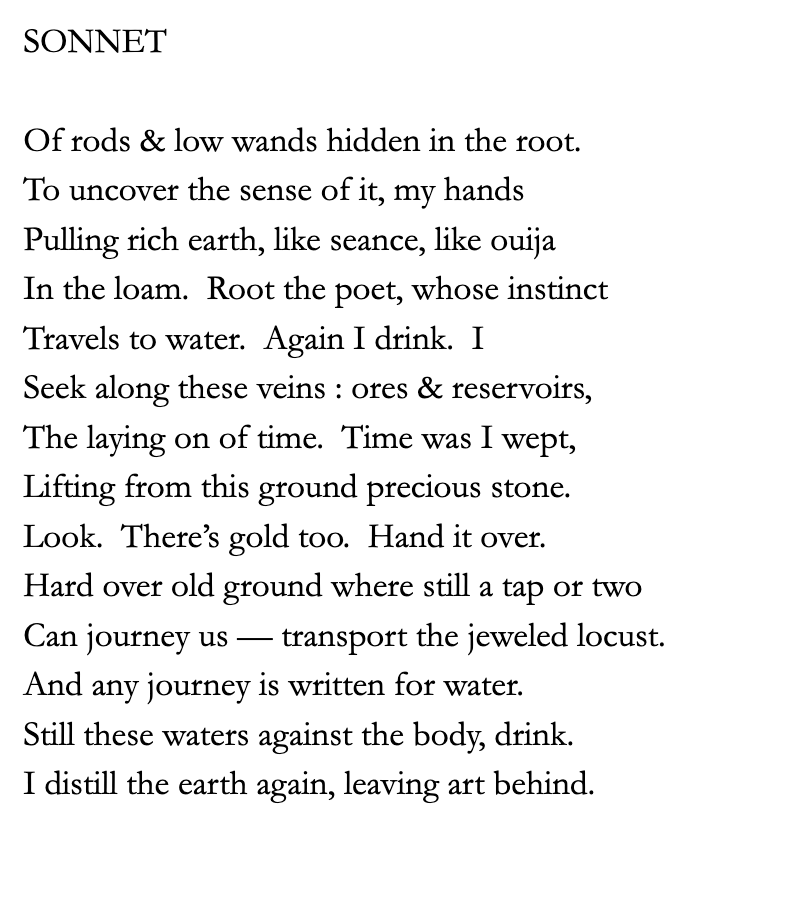Of rods & low wands hidden in the root.
sonnet no. xlv
No Ordinary Sonnet
A sonnet every week means that more than once I publish one that is unsatisfying. Which isn’t to say it isn’t good — if I was embarrassed by it I wouldn’t publish it — but that I cannot love the poem.
The sonnet published on the last Monday of March was like that:
Squats? Maybe that’s it. Or is it using the third person singular instead of plural, even though I wanted to indicate a singular entity in “Doom & Gloom”, allowing to jar a reader’s sense of proper grammar? Perhaps. The first line’s ugliness is intentional, but for whatever reason I couldn’t say the rest of the poem benefits from it, and there are some sweet spots to this poem. Still, something unloved doesn’t get much attention, and even in my last revisions I was bored enough not to note the typo that runs at the end of line 11.
I decided to return to this poem as a candidate for a transformation. I was going to break apart this poem, render a violence to it and from that violence create a new song.
Shield, Shard, Stitch, Song
I believe this form was created by Dan Beachy-Quick, if I’m mistaken let me know. It is really four poems: a first poem that is then erased twice, and from the second erasure, a new poem is written.
The shield is the first poem, in Beachy-Quick’s analysis something that is relic, that guards, that hides a violence and will incur a violence, eventually to be broken. Something is being guarded here in the poem I referenced above, which I’ll place here (without the typo):
From first the shield, let’s break the shield, making shards. Break apart what was whole, getting at the fillings, finding the space.
From the shards on the ground, we’ll pick up a stitch. One thread (of which there are many) to follow, a seam in the stone.
I discover what the shield has been guarding.
The Song
From the stitch, we create a new sonnet. We take the letters and words of the stitch and around it we have rebirth. This will be sonnet 45:
To see many more of these poems in actions, consider purchasing Shields & Shards & Stitches & Songs, by Dan Beachy-Quick from Omnidawn Press.








Oh, very interesting way of looking at the writing process. Of course, there are poems that I write that are not satisfying. I tend to think of them as stepping stones. Something did not work, and I learn from that to not do that again. Or at least try to. But to break it up, find that "stitch" and mend it into something new, that's a valuable process. You described it very well here! Thank you for sharing that. And yes, I do like the new version better.